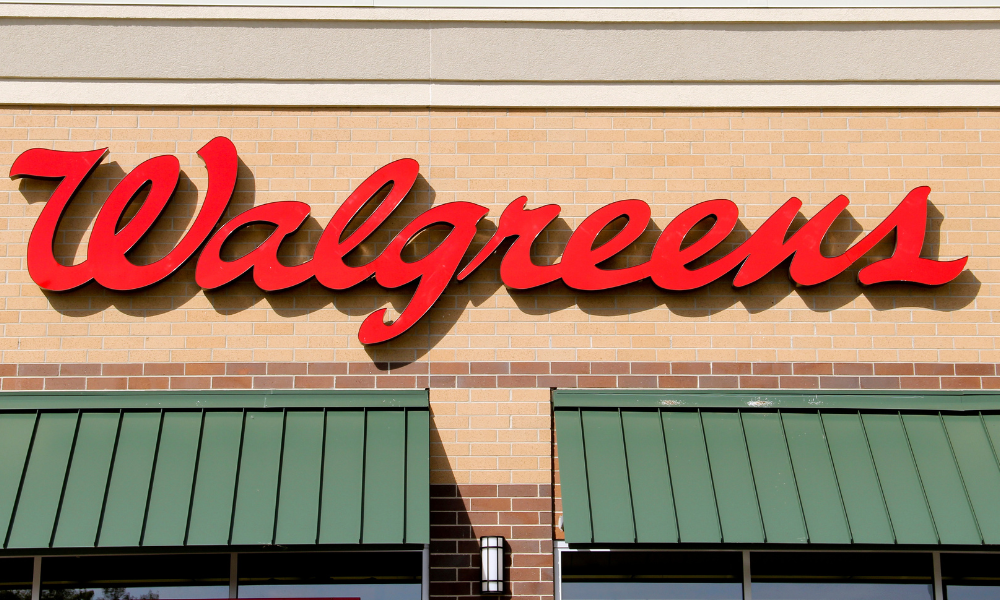

by Ike Swetlitz and John Tozzi
Walgreens Boots Alliance Inc. agreed to be purchased by Sycamore Partners for $10 billion, turning one of the oldest, most recognizable US drugstore chains into a private company.
Sycamore will pay $11.45 a share in cash for Walgreens, according to a statement Thursday. The offer represents a roughly 8% premium to Walgreens’ closing price in New York. The shares rose 5.7% after US markets closed.
The purchase price is a stunning decline from Walgreens’ value a decade ago, when it soared above $90 billion. The stock has fallen steadily over the past 10 years amid increasing competition from online retailers and big-box stores, along with stingier payments from health insurers. The shares have lost about half their value over the past 12 months.
The deal is expected to close in the fourth quarter of 2025. It also includes a “go-shop” period, initially set for 35 days, when Walgreens will solicit and potentially evaluate other offers.
The Wall Street Journal reported the news earlier.
Over the past few months, Walgreens’ stock swung wildly on tidbits of deal news. Investors and analysts had been skeptical that the company would be able to sell itself given its roughly $8 billion in debt and $22 billion in lease obligations. Under private ownership, it will be more free to make long-term changes with less concern for their impact on the day-to-day stock price or quarterly earnings.
CEO Tim Wentworth has been closing stores and selling investments to cut costs and raise money. Walgreens earlier suspended its quarterly dividend after paying it for 92 years.
Walgreens’ transformation into a private equity unit is a retreat from the vision Executive Chairman Stefano Pessina pursued for more than 10 years of making it a powerful health-care conglomerate. The company broadened by purchasing health clinics, but they weren’t as profitable as anticipated.
Pessina, who owns about 17% of the company, will keep a significant equity interest in the businesses, reinvesting his cash from the deal into the acquiring company.
Walgreens also has plans to divest its stake in VillageMD, the chain of health clinics that it invested in as part of an effort to keep pace with competitors like CVS Health Corp. Walgreens had already written off $5.8 billion of value from the business. Under the deal with Sycamore, Walgreens holders will also get rights to receive up to $3 in cash per share from the future monetization of the company’s interests in VillageMD.
New York-based Sycamore focuses on retail and consumer companies, according to its website. Its investments include restaurant franchiser Playa Bowls, fishing supply company Pure Fishing, and women’s clothing brands LOFT and Ann Taylor.
Centerview Partners is financial adviser to Walgreens on the deal, and Morgan Stanley is also an adviser. For Sycamore, UBS Investment Bank is lead financial adviser, Goldman Sachs Group and JPMorgan Chase & Co. are co-lead financial advisers, and Citigroup Inc. and Wells Fargo & Co. are financial advisers.
Copyright Bloomberg News

From outstanding individuals to innovative organizations, find out who made the final shortlist for top honors at the IN awards, now in its second year.

Cresset's Susie Cranston is expecting an economic recession, but says her $65 billion RIA sees "great opportunity" to keep investing in a down market.

“There’s a big pull to alternative investments right now because of volatility of the stock market,” Kevin Gannon, CEO of Robert A. Stanger & Co., said.

Sellers shift focus: It's not about succession anymore.

Platform being adopted by independent-minded advisors who see insurance as a core pillar of their business.
RIAs face rising regulatory pressure in 2025. Forward-looking firms are responding with embedded technology, not more paperwork.
As inheritances are set to reshape client portfolios and next-gen heirs demand digital-first experiences, firms are retooling their wealth tech stacks and succession models in real time.
